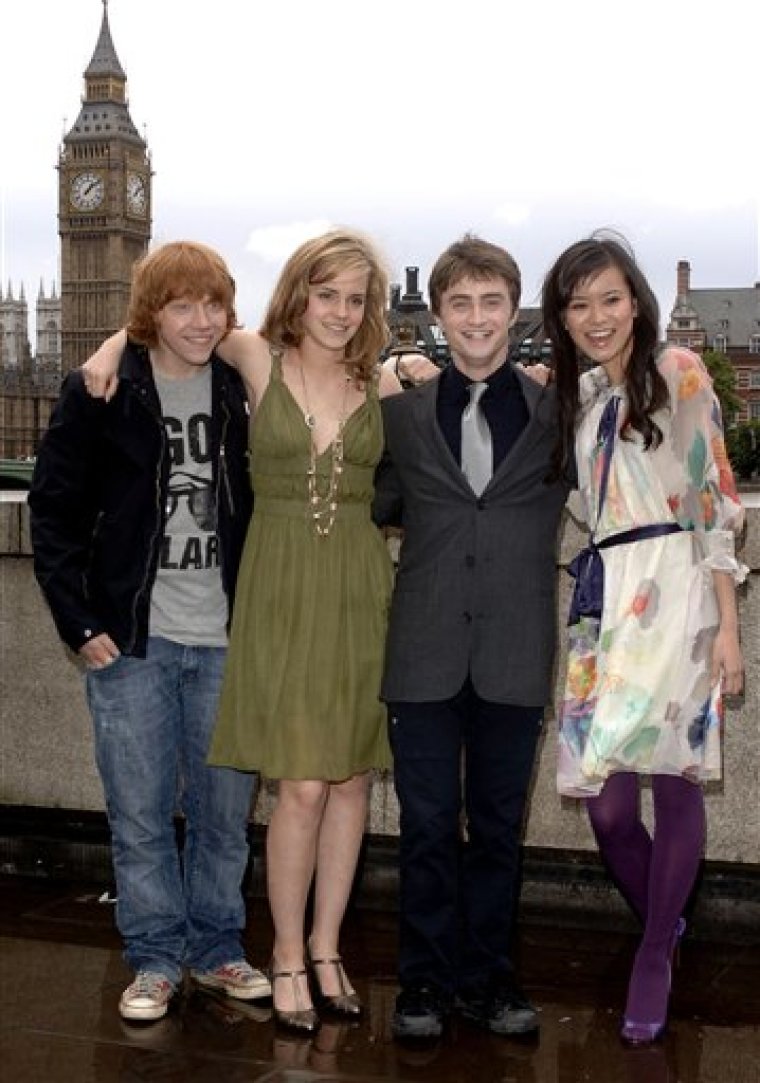
With the fifth instalment of the "Harry Potter" film series released, the debate is bubbling once again over whether the boy wizard is suitable for Christian audiences or the cute face of a more sinister world of the occult that Christians should steer well clear of.
Many ministry leaders in the past have criticised the "Harry Potter" series over its use of magic and argue that it promotes the occult – an assertion that, if true, could be serious since the movies and literature target children who can be most affected by negative spiritual content.
But even after five movies-worth of discussions, Christians are still split on the issue.
"By now, there's nothing new under the sun when it comes to the use of magic in the Harry Potter series of books and movie," explained critic Lindy Keffer of the Christian movie site Plugged In Online. "Even with all the magic in the air, the worldview of '[Order of the] Phoenix' can't be called consistently occult. Like the world we live in today, it's a hodgepodge of ideas that are accepted simultaneously, even if they don't really fit together."
Dr Ted Baehr, founder of MovieGuide.org, however, is less accommodating in his review.
"[T]he movie version of 'Harry Potter and the Order of the Phoenix' is liable to still do great business at the box office," he wrote. "Regrettably, however, this means that even more children will be lured away from God and His Infallible Word, which says that witchcraft is evil and abhorrent. Instead of dreaming about the joys that God gives us through Jesus Christ, they will be dreaming of casting spells, using magic spells, riding brooms, and rebelling against their parents."
In the newest "Potter" film, Harry's magical world is interrupted by an evil disturbance. The main villain of the films, Lord Voldemort, has returned to the world and is mounting an army to regain his former strength.
Harry, his friends, and several mature wizards such as Professor Albus Dumbledore must struggle with the current Ministry of Magic which refuses to recognise the dire situation. In an act of civil disobedience, the group must unite to prepare for an attack from Voldemort, despite the wishes of the wizardry government. The Order of the Phoenix is reunited, bringing together the "good" wizards to again fend off the dark lord.
There is still a huge outcry against the new movie from several conservative Christian groups who warn families to keep their children away from the film, asserting that it can leave ill effects for normalising a dark spiritual world.
There has, however, also been a new wave of Christians supporting the literature. They feel that others exaggerate the problems of witchcraft found in the books.
One author and home-schooling mother recently had a change of heart when she read the books. After keeping "Potter" out of her house for years, Nancy Brown from Illinois gave the books a chance and said she found the books to actually be positive for child growth. She has written a new novel, "The Mystery of Harry Potter", that came out mid-June to even encourage Christian parents with the material.
"After reading Harry Potter for myself, I had to conclude that the Potter series is not about the occult or witchcraft but actually just the opposite," explained Brown in a statement. "The stories are morality tales filled with excellent opportunities for family discussions.
"In short, the Harry Potter books are great for all families and especially Christian parents, who for centuries have used literature to illustrate the struggle between good and evil when teaching their children."
The movies gained huge victories when conservative ministry heads such as Dr James Dobson, founder of Focus on the Family, and Chuck Colson of Prison Fellowship Ministries gave their stamp of approval.
But looking at the whole landscape, it may be impossible to gain a firm consensus on how Christians feel about the wizard themes found inside "Harry Potter." Is the material innocent enough for its audience?
"Though the film version of 'Phoenix' is not as gloomy as the book, the story presented therein is still far too severe to justify the affections of its primary fans: kids," concluded Plugged In Online critic Keffer. "And that's true without even mentioning the ongoing dilemma presented by the omnipresence of magic and the clash with the real-life truth that there is no such thing as a good witch or wizard."